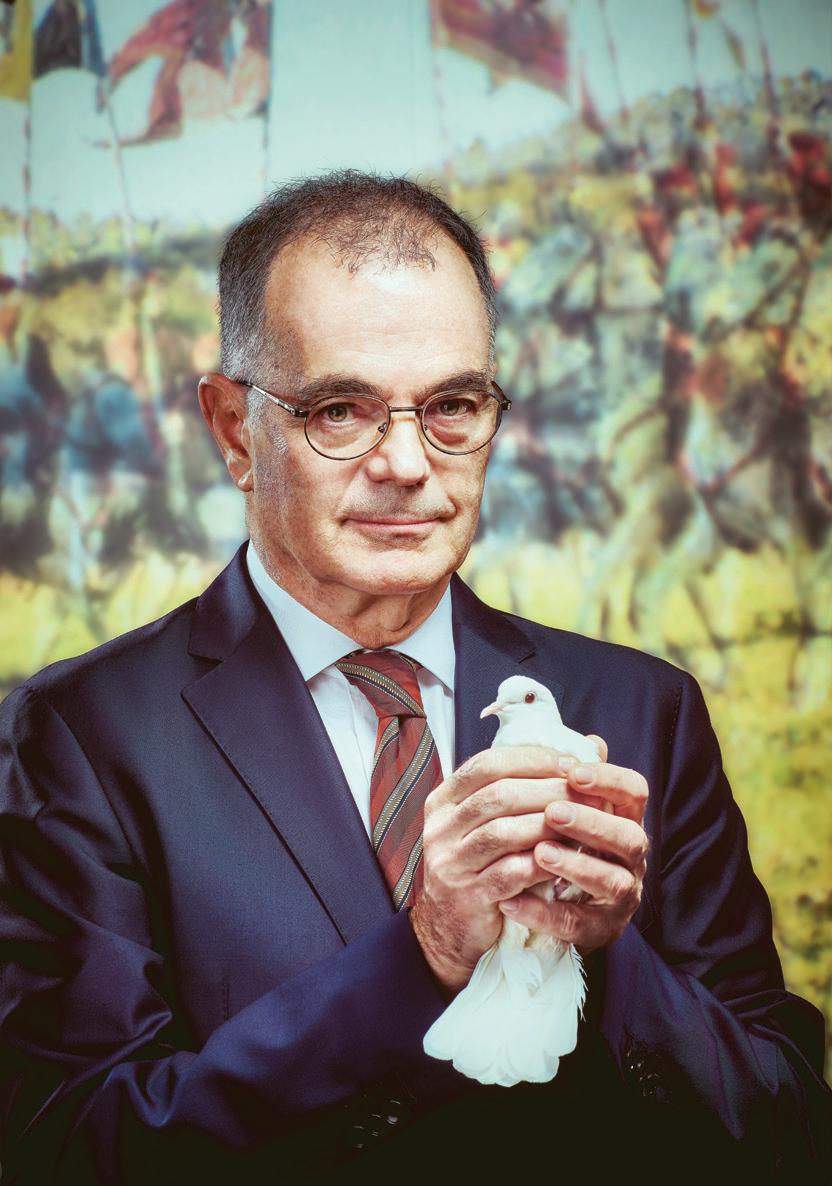
3 minute read
Community Weeks
Borbála Gyapay and János Asbóth
were expecting their fi rst child when this photo was taken. The music-loving couple listened to the fourth movement of Saint-Saëns’s Symphony No. 3 together, and László Mészáros captured the essence of their experiences in this picture. For Borbála, it included solemnity, a wedding procession, and energetic images of spring, while János talked about a marching army and a threatening atmosphere, swept away by springtime pictures of nature.
Advertisement
Community Weeks
In the past almost forty years, the BFO and its audience have grown into a large, and ever-expanding, music-loving family. Together, we experience the strength of the unity created through the years. The objective of our Community Weeks is to expand this family, while also providing our musicians with opportunities to show off their talents in new roles, in addition to making music in the orchestra.
Church concerts There are many people in this country who are open to music, but distance and a lack of time prevent them from enjoying the BFO’s performances. We help them by bringing our free concerts to local churches. Eleven years ago we founded our Baroque ensemble, which plays on authentic period instruments. Their performances play a key role in both our regular season and our community work. And what could be more fitting for Baroque music than the spirituality, atmosphere, and acoustics of a church? We started our concert series in the summer of 2014. Since then, we have visited Catholic, Calvinist, and Lutheran communities. The first of these concerts was at the Lutheran church in Budapest’s Deák square, and our subsequent nationwide tour has taken us from Pannonhalma to Soltvadkert to Sellye, and even to the tiny Transylvanian village of Kaplony.
Synagogue concerts Since 2014, we have performed in provincial synagogues that have been abandoned or that no longer serve their original purposes. The halls come to life again: melodies, stories, and flavors can introduce local communities to the diversity and tolerance that was once so typical of Hungary. Our concerts will feature works by composers with Jewish connections, as well as klezmer tunes. As Iván Fischer said, “synagogues still stand in many villages and small towns which have not had Jewish inhabitants for a long time. In some places they are in ruins, in others they have been turned into furniture stores or a gym. We visit these places and give free concerts. People are curious, and the music entices them in. The orchestra plays, and afterwards a rabbi
speaks about how things used to be, about how cohabitation with the Jewish community once looked. With the beauty of our music and those stories, we hope to bring the memories of the former Jewish community closer to those who now live near the building.” The concert series is a joint production by the BFO, the United Hungarian Jewish Congregation (EMIH), and the Federation of Hungarian Jewish Communities (Mazsihisz); the Art Mentor Foundation Lucerne is a platinum level supporter.
Music Castle “Where music and stories touch: that is where the Music Castle begins.” (Erika Illési, violinist) Every social class and age group is equally important to the orchestra, which is why, during Community Weeks, we visit child-care institutions in the farthest-flung corners of the country, as well as the elderly living in nursing homes. We bring with us on these occasions the playful and interactive Music Castle program. We visit children who usually live under difficult circumstances and have often never even seen an instrument in real life, meaning they await the encounter with excitement and curiosity. Our job is to give them a lasting gift and to teach them how to experience the unity created through music. Previously, we have performed at venues such as SOS Children’s Villages, the Real Pearl Foundation in Told, the village of Cserdi in Baranya county, and the International Pető Institute.
Golden Years We always find that residents of nursing homes receive our concerts with heartfelt affection. They treat these occasions as a celebration. They read up on the compositions, don their best clothes and listen to the performance with unwavering attention. We visit them in their homes so that we may share the joy of music without obstacles, in a familiar environment, directly. “The gratitude in the eyes of the elderly listening to our music is a great source of joy also for us.” (Lajos Dvorák, cellist)







